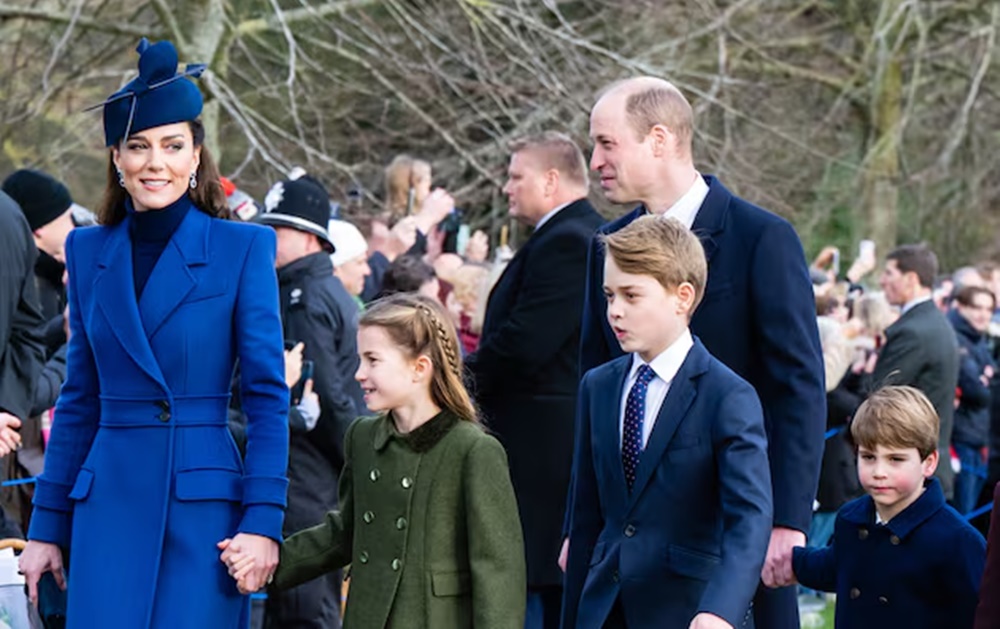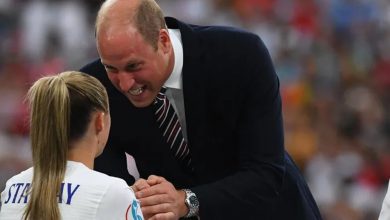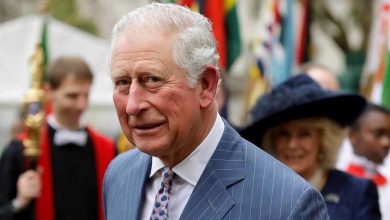Kate has cancer – psychologist says what it does to the family
Cancer in the royal family - first King Charles, now the Princess of Wales. How is the young royal family doing now and how can we actually talk about all this stuff in the family?

Family psychologist Nina Grimm has answers.
How can such a deadly disease be taught to children?
Kate and William did a lot right by taking the time to digest the shock for themselves so that they could calmly teach the kids.
In fact, one of the most important first steps is for Kate and William to take good care of themselves so that they can tell the children about the illness in a stabilized and composed manner – which is one of the most important prerequisites for the three of them to be able to digest it well. And of course for Kate and William – as for every affected family – a challenge.
The way in which such a serious illness is explained to children depends largely on their age. I would recommend that every affected family first convenes a general family council, in which I describe the situation in very simple terms, and then later talk to each child individually and in a specific age-specific manner.
For the round table, which also includes small children like Louis, I would recommend very simple words like:
“Mom has an illness that will take a lot of energy out of my body in the near future. And I’ll have to see doctors frequently and take special medicine for it in the near future. And all of this will probably be very stressful for my body, so I might have to worry soon I need to rest more often. But Dad, the doctors and I are confident that my body can handle it. Then I would give the children the opportunity to ask questions and answer them openly and in a child-friendly way.
About the expert
Nina Grimm is a family psychologist, cognitive behavioral therapist, best-selling author and mother of two. Despite her extensive theoretical knowledge through her training, she realized after the birth of her first child that theory often doesn’t help much in the chaotic everyday family life. She developed a consulting concept and wrote a successful book to help families combine theory and practice and manage stress in family life.
At what point do children understand that cancer is a deadly disease? Should they even know that? Or does it just cause unnecessary anxiety?
In fact, children can only fully grasp and understand death from the age of 9 to 12 – so at least two of the three royal children are still too young for that. At their age, they can understand that death means someone is leaving – but they cannot yet grasp the finality.
That’s why I would advise Kate and William not to focus too much on the death brought into the spotlight by the diagnosis – but rather focus on the fact that it is an illness that costs the body a lot of strength. But there is a medicine that mom takes – period. By the way, also for Kate and William themselves. Focusing on life is probably one of the best things you can do in this situation and it also has a positive psychological effect.
If the condition worsens or the stage of cancer progresses, death can still be discussed.
What advice would you give Kate? How can you deal with such a difficult diagnosis?
She did a lot of things right: taking space for herself and letting this new reality arrive. She is seriously ill – and this truth must first reach the system and be digested. I would sincerely wish her not to go to war – and not to fight cancer. But with all your heart and with love for yourself, for your children, for your nation, and perhaps even on behalf of all those affected – …for life to begin.
Death is an important teacher: even if it hurts and scares us, it also shows us how beautiful life actually is. And how much it is worth savoring and living. I hope for Kate that she can also taste this nuance of this tragedy.
How does an illness like cancer affect the entire family? What does it do to the relationship too?
This is of course a shock for everyone who can already understand it. It is often the case that an affected family initially falls into actionism. Which is good, because there is a lot to do: the right therapy has to be researched, many things have to be organized, discussed and planned.
The only important thing is that at some point we as a system reach a point where we stop – and allow ourselves to feel what the diagnosis is doing to us. To talk about it. And to be able to take good care of yourself.
This is something that is often neglected by relatives. They often feel powerless and helpless – and therefore remain active.
It is especially important for them to remember that they play a central role in the recovery process – because a good relationship, a happy family gives us the psychological boost we need to heal from a serious illness. Precisely because family members are so important, they urgently need to take good care of themselves. And above all, allow yourself to have a good time.
An illness like cancer definitely shakes up the entire role relationship and generally shakes everything up – that takes time to realign itself so that everyone can take their place again.
First King Charles, now Kate – quite a lot for William to cope with.
This is certainly a huge trigger for him – he lost his mother to tragedy and now he comes face to face with the death of another beloved woman in his life. It is very likely that this will awaken – even if unconsciously – a great fear of loss, which will put a lot of stress on his system. William should definitely take good care of himself now.
How can Kate and the family be helped?
The best thing the public can do now is to honor their wishes and give them the privacy to devote themselves to ensuring Kate gets well and the children stay well.


